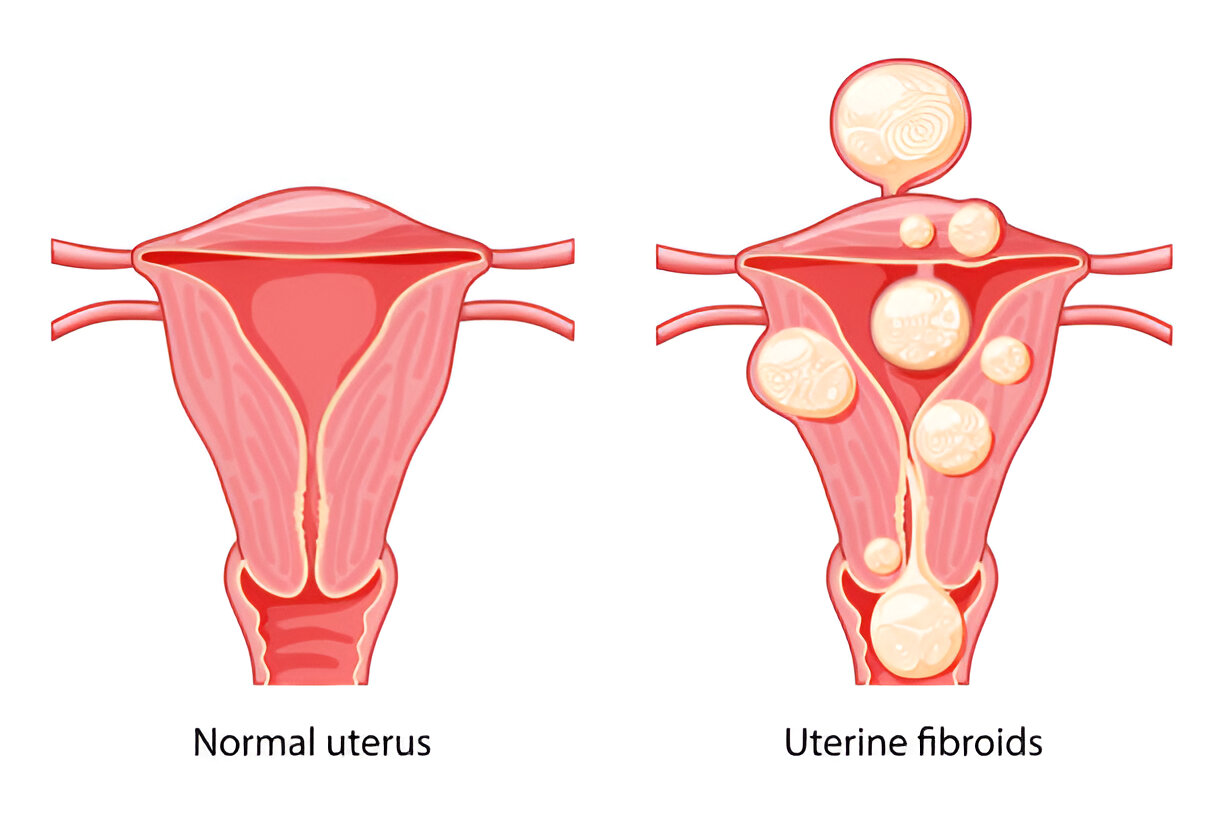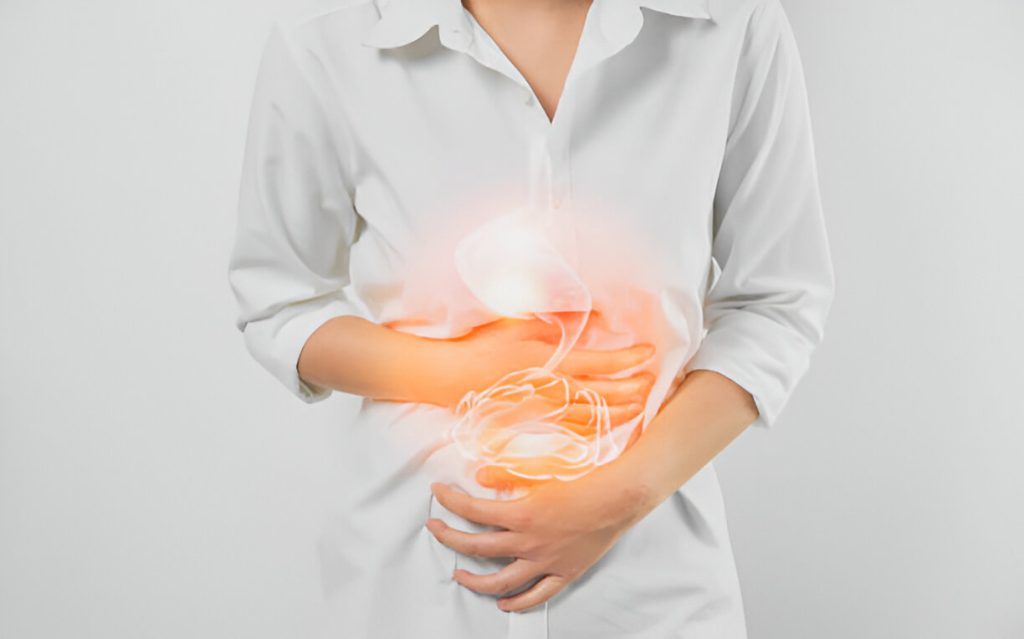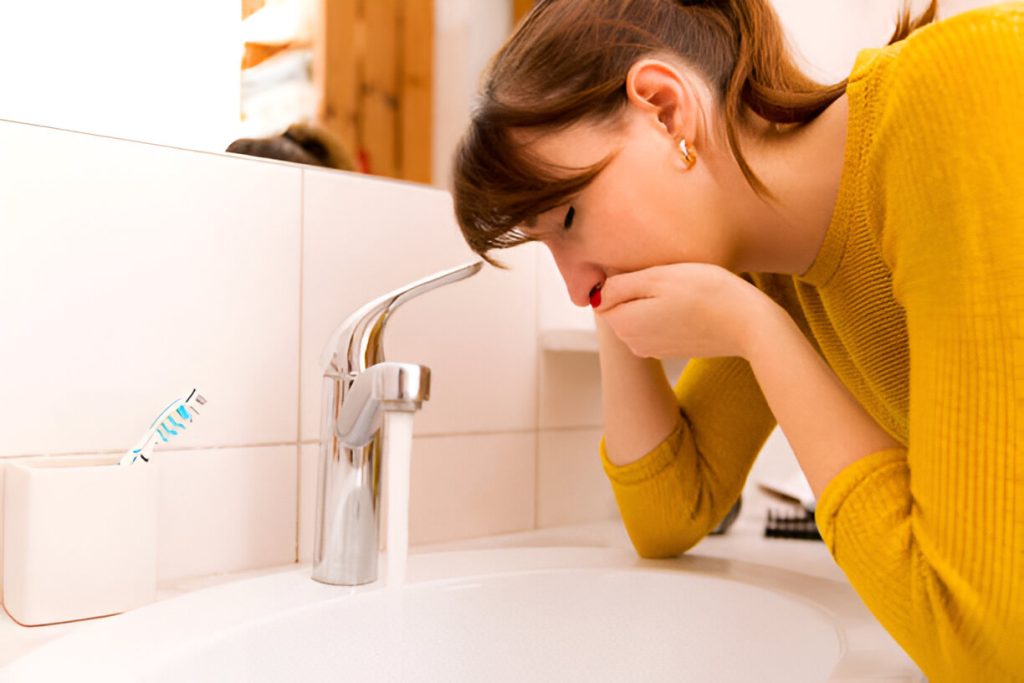Can Uterine Fibroids Cause Gastritis? Understanding the Connection
Uterine fibroids and gastritis are two conditions that impact different bodily systems—the reproductive and digestive systems, respectively. However, many women with uterine fibroids report symptoms commonly associated with gastritis, such as bloating, abdominal pain, and nausea.
This overlap raises an important question: Can uterine fibroids cause gastritis?
Here, we’ll dive into the question of whether can fibroids cause digestive issues like gastritis and what you can do to find relief.
What are Uterine Fibroids?
Uterine fibroids are noncancerous, muscular growths that form in or on the uterus, typically during a woman’s reproductive years. They can vary widely in size and location, with some fibroids as small as a pea and others growing large enough to alter the shape of the uterus.
Uterine fibroids are generally classified based on their location:
- Intramural Fibroids: These fibroids grow within the uterus wall and are the most common type.
- Submucosal Fibroids: These fibroids extend into the uterine cavity and are less common but can cause significant symptoms.
- Subserosal Fibroids: Found on the outer wall of the uterus, these fibroids can grow large and exert pressure on nearby organs.
- Pedunculated Fibroids: Fibroids that develop on stalk-like structures, either outside or within the uterus.

Although fibroids are very common and often symptomless, depending on the size and location of the fibroids, some women experience discomfort from fibroid symptoms like heavy menstrual bleeding, pelvic pain, frequent urination, and back pain.
What is Gastritis?
Gastritis is the inflammation of the stomach lining, which can be caused by various factors, including infection, excessive alcohol consumption, chronic stress, and prolonged use of nonsteroidal anti-inflammatory drugs (NSAIDs) or smoke.
Symptoms of gastritis include bloating, nausea, upper abdomen pain, loss of appetite, and indigestion.


Can Uterine Fibroids Cause Gastritis?
While fibroids do not directly cause gastritis, they can contribute to gastrointestinal symptoms that mimic those of gastritis. Here’s a look at how this occurs.
Pressure on Digestive Organs:
Large uterine fibroids can push against the intestines and bladder, leading to sensations such as abdominal bloating, discomfort, and a persistent feeling of fullness.
This pressure may closely resemble gastric symptoms, causing confusion between fibroid-related discomfort and gastritis.
Constipation and Digestive Issues:
Fibroids located at the back of the uterus can exert pressure on the colon and rectum, causing difficulty with bowel movements and leading to chronic constipation.
This interference can result in severe constipation, which brings about additional complications such as hemorrhoids, anal fissures, rectal bleeding, and even fecal impaction if left untreated.
Frequent Urination and Urinary Symptoms:
In severe cases, the presence of large fibroids may even mimic the feeling of pregnancy, putting added pressure on the bladder and shrinking its capacity.
This bladder pressure causes frequent urges to urinate. It can sometimes result in the sensation of incomplete emptying, which can indirectly contribute to abdominal bloating and discomfort, often mistaken for gastric symptoms.
Hormonal Influence:
Estrogen and progesterone, hormones involved in the development and growth of fibroids, also play roles in gastrointestinal health.
Imbalances in these hormones can cause symptoms that overlap with those of gastritis, such as bloating and nausea.
Managing Gastritis-Like Symptoms Caused by Uterine Fibroids
If fibroids are thought to be causing or worsening gastritis-like symptoms, management usually focuses on reducing fibroid size and pressure on digestive organs. Treatment options can include:
- Medication: Medications can help regulate hormones to slow fibroid growth and may relieve related gastrointestinal symptoms.
- Dietary Adjustments: Eating smaller, more frequent meals, avoiding high-fiber foods, and staying hydrated may help with digestion, minimizing bloating and discomfort.
- Non-Invasive Procedures: Uterine artery embolization (UAE) can block the blood flow to fibroids, leading to their shrinkage.
- Surgical Interventions: Options include myomectomy (surgical removal of fibroids) or, in severe cases, a hysterectomy (removal of the uterus).

When to See a Doctor
If you’re experiencing persistent symptoms of either fibroids or gastritis—especially if symptoms worsen over time—it’s essential to seek medical attention.
Gastrointestinal discomfort, pelvic pain, or bloating that does not improve with lifestyle changes should be evaluated to rule out serious complications.
FAQs
Can fibroids cause digestive issues?
Fibroids can press on nearby organs, including the intestines and bladder. This pressure may cause bloating, constipation, and feelings of fullness in the abdomen, which can be mistaken for digestive issues. When fibroids interfere with bowel movements, they may cause additional gastrointestinal symptoms.
Can fibroid cause constipation?
Yes, fibroids located at the back of the uterus may press on the colon or rectum, resulting in constipation or difficulty with bowel movements. This pressure can worsen if iron supplements (often prescribed for fibroid-induced anemia) also cause constipation.
What are non-surgical treatment options for fibroids?
Non-surgical treatments include medications and procedures like Uterine Artery Embolization (UAE), which cuts off blood flow to the fibroids, causing them to shrink. Dr. Sandeep Burathoki, an Interventional Radiologist and fibroid specialist, offers these advanced options to help women in Dubai manage fibroid symptoms without surgery.
Consult Dr. Sandeep Burathoki- A Fibroid Specialist in Dubai
While uterine fibroids and gastritis are distinct medical conditions, the gastrointestinal symptoms associated with fibroids can sometimes mimic those of gastritis. Understanding these overlapping symptoms can help women identify the underlying cause and seek targeted treatment.
If you’re experiencing persistent digestive discomfort or other symptoms that may be linked to fibroids, seeking expert care can make all the difference. Dr. Sandeep Burathoki, a leading Neuro Interventional and Interventional Radiologist and fibroid specialist in Dubai with over 17 years of expertise, provides advanced, non-surgical treatment options to help women manage fibroid symptoms effectively.

